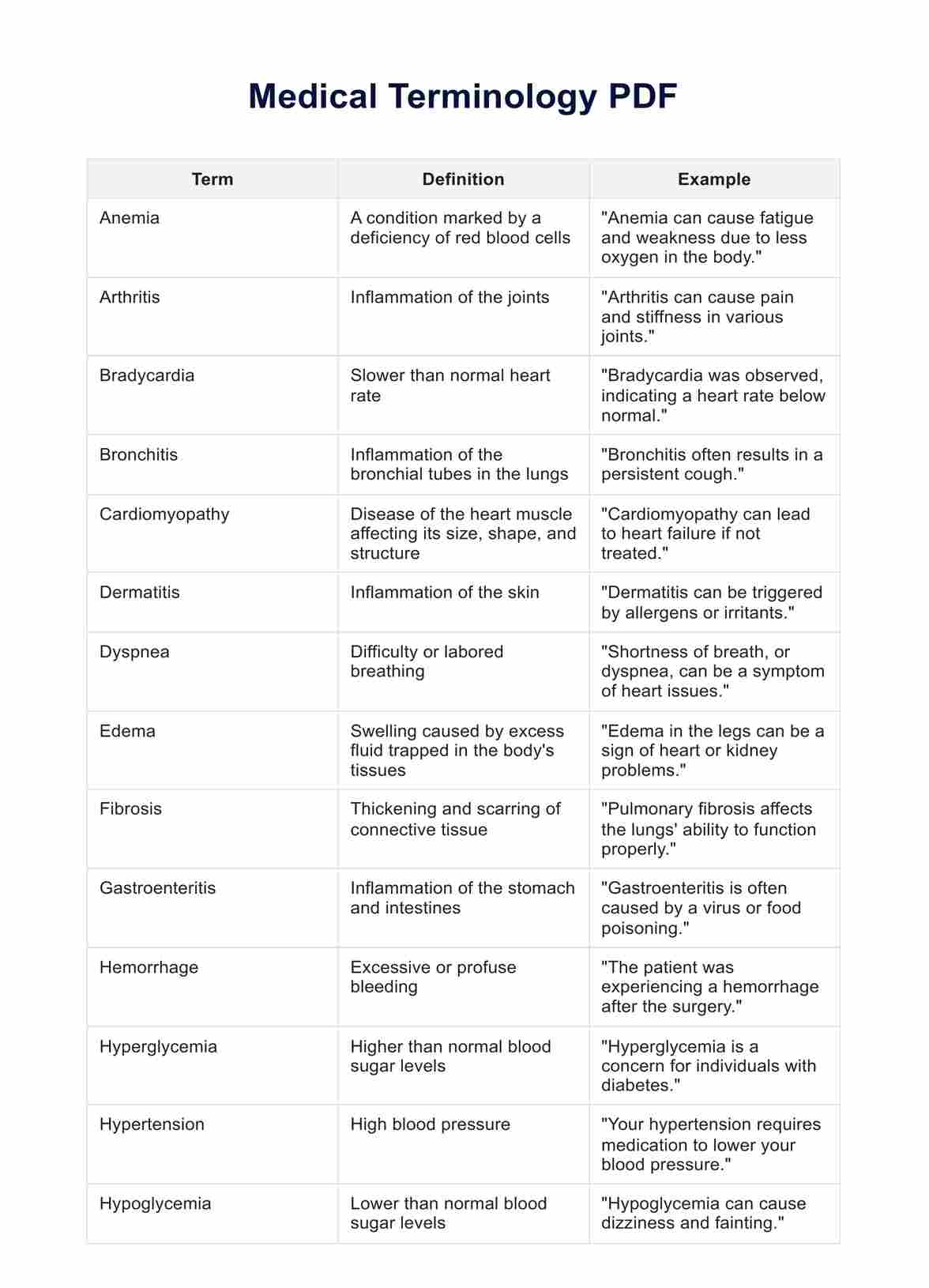Medical terminology is a specialized language used in the healthcare industry to describe the human body, its functions, diseases, and treatments, ensuring clear and precise communication.

Medical Terminology PDF
Explore Carepatron, the ideal medical software, complete with advanced patient portal and telehealth features, enhancing healthcare efficiency and patient care.
Medical Terminology PDF Template
Commonly asked questions
Understanding medical terminology is crucial for accurate communication among healthcare professionals, effective patient care, and proper documentation and organization of medical records. It ensures clarity in diagnosis, treatment, and patient education.
Carepatron assists healthcare professionals by providing tools for efficient documentation and patient communication, where understanding and using medical terminology correctly is essential for effective practice.
EHR and practice management software
Get started for free
*No credit card required
Free
$0/usd
Unlimited clients
Telehealth
1GB of storage
Client portal text
Automated billing and online payments











